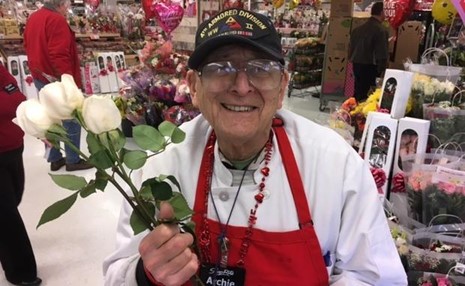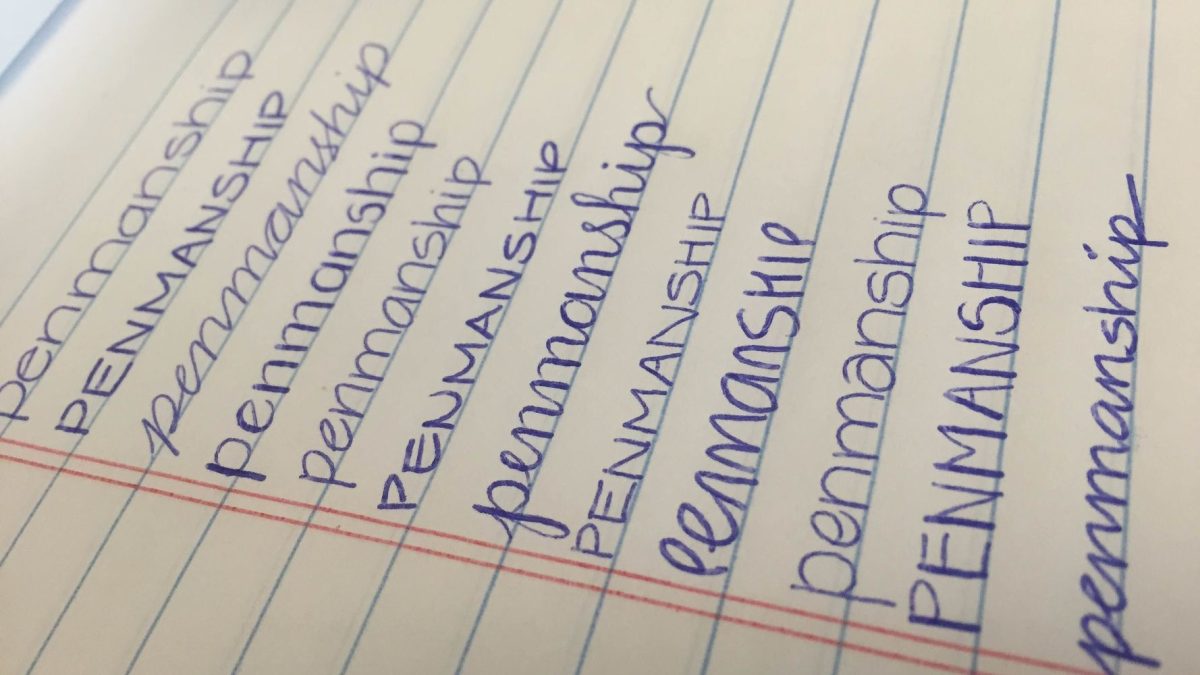“He has to be one of the sweetest people I’ve ever met,” said 12th grader Gianna Grumer, vice president of CB South’s Operation Eternal Gratitude. “He’s full of kindness, wisdom, and lots of hugs!”
Grumer was referring to none other than Archie Fagan, CB South’s favorite ninety-six-year-old World War II veteran, who has been a staple of the Pennsylvania community for decades. Here is his story.
Archie Fagan was born in 1927, when, as he says, “Babe Ruth hit sixty home runs for the first time, Calvin Coolidge was president of the United States, and the flappers were still dancing the Charleston.” Born during the famed prosperity of the 1920s, the young Fagan’s life would soon take a turn as the United States plunged into the Great Depression. One of eight children, the Depression rendered Fagan’s parents unable to raise him, so he was sent to live with his wealthier grandparents in Philadelphia.
Many years later, the Second World War erupted, and Fagan was drafted into the U.S. Army after graduating from Central High School in 1944. Just seventeen when he was drafted, he had no idea what he was getting into: “We were just dumb kids,” he explained. But within a matter of weeks, he would transition from a “dumb kid” who played stickball with friends after school to a trained soldier, soon to see the horrors of war up close.
After arriving in the European Theater, Fagan was sent to fight in the Battle of the Bulge. It was during that battle that he suffered a shrapnel injury—a wound whose scar can still be seen on his hand today—so he was instead moved to work in the army’s intelligence unit. He spoke Yiddish, a combination of Hebrew and German, so he was assigned to interrogate German prisoners of war. According to Fagan, one of the most important bits of intelligence he was able to obtain was that the Germans were running out of petrol, indicating that victory in the battle was near.
As the war approached its end, Fagan was a member of the American troops who liberated the Dachau concentration camp. “We could smell death ten miles away,” he said, squinting his eyes while evidently deep in thought. He and his comrades had been told of the horrors ahead but could not expect anything close to what they would eventually see. “There were emaciated bodies that looked like walking skeletons. We couldn’t feed them right away, as they would die if we gave them too much food, or the wrong kind of food. There were fifty rail cars on the tracks that were full of dead bodies.” He felt anger, sadness, and disbelief, along with a great disappointment in “man’s inhumanity to man.”
After the war came to an end, Fagan’s bilingual prowess became useful again when he was invited by one of his superiors to stay in Europe for the Nuremberg Trials. “I saw the faces of evil and looked them in the eyes,” he said. Some of those “faces of evil” Fagan witnessed include Hermann Göring, chief of the Luftwaffe and president of the Reichstag, Franz von Papen, the politician responsible for bringing Hitler to power, Rudolf Hess, a leading member of the Nazi party, and Joachim von Ribbentrop, Nazi Germany’s Minister of Foreign Affairs. He found it hard to fathom the absolute historic significance of the trials going on in front of him.
Once the trials ended, Fagan was given the option to stay in Europe and receive a promotion, but he instead chose to return home. Still a young man, just barely removed from his teenage years, he cried when he first saw the Statue of Liberty after being away from home for so long. Upon returning to Philadelphia, he used the provisions of the G.I. Bill of Rights to attend Wharton at the University of Pennsylvania.
Nowadays, he spends his time doing what he loves. Recognizing that life moves fast, he takes time to enjoy each day as it comes. He follows the stock market, reads three to four newspapers per day, and is currently in the middle of a lengthy book about the role of the RMS Lusitania in World War I.
But mostly, above all else, Fagan loves people. A self-described “people person,” Fagan chose to work at his local grocery store until he was ninety-three so he could see and talk to new people each day. He only stopped when the COVID-19 pandemic arrived, and the store was forced to shut down.
But Fagan hasn’t let the end of his grocery store job keep him from enjoying the company of others. Nowadays, he visits Pennsylvania schools to share his story, including making visits to South’s very own Operation Eternal Gratitude. He enchants students with stories of his childhood and war experiences, as they hang onto his every word. At South’s Veteran’s Day assembly this past November, he waved, smiled, and blew kisses to the student body as he received a several-minute long, uninterrupted standing ovation.
If nothing else, Archie Fagan is a man who loves life and everything it has to offer.
And at school visits, he makes it his mission to share with students his ways to make the most out of life. When asked his philosophy on life by a South student, Fagan gave three bits of wisdom: “Be kind to others, love your neighbor, and have gratitude for your country, because it is the greatest country on earth.”





Dottie Dargis • Apr 6, 2024 at 7:36 pm
I know we all have to go sometime, but I really thought in Archie’s case God would make exception. Alas, this could not be the case. Rest well in God’s love Archie. You have brought goodness, love and sunshine to so many!